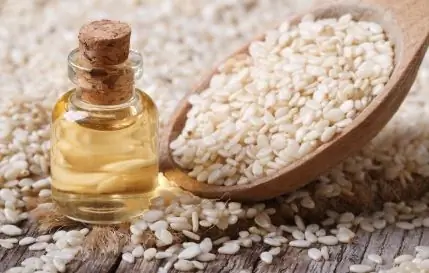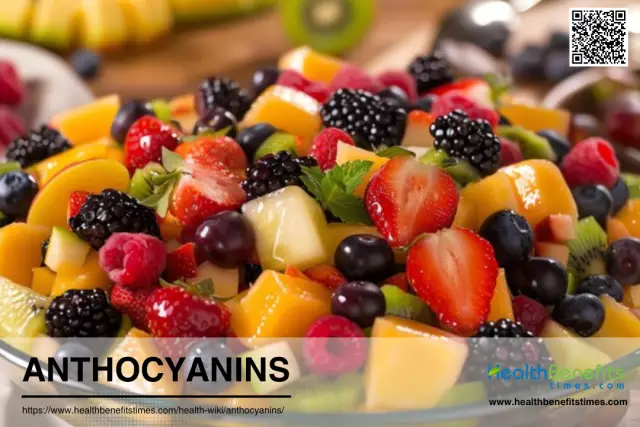- Author Rachel Wainwright [email protected].
- Public 2023-12-15 07:39.
- Last modified 2025-11-02 20:14.
Vitamin B8
Vitamin B8 (inositol, inositol) is a vitamin-like substance synthesized from glucose in body tissues. Inositol in its pure form is a white crystalline powder with a sweetish taste. Like other B vitamins, inositol is soluble in water and is destroyed by high temperatures. The body synthesizes about 3/4 of the daily value of vitamin B8, the remaining 25% must be replenished in the body from the diet.

Vitamin B8: the biological role of the substance
Vitamin B8 was discovered in 1848 by the German chemist Liebig, and in 1928 this substance was included in the classification of vitamins as B8. In the course of research, the role of the vitamin in the human body was established. Vitamin B8 ensures the normal course of metabolic processes, being a part of many enzymes, activates lipid metabolism (which contributes to active weight loss), regulates cholesterol levels, thereby helping to prevent the development of atherosclerosis, obesity and other diseases provoked by overweight.
Vitamin B8 is one of the most important vitamins of the group. Its deficiency can lead to disruption of many processes in the body. Inositol stimulates the activity of the brain, improves concentration, stimulates mental activity, reduces brain fatigue, and increases its ability to memorize information.
Vitamin B8 ensures the transmission of impulses between cells, is used in the treatment of disorders of the sensitivity of nerve endings and diseases associated with this disorder. Inositol protects the liver from harmful substances (toxins, alcohol, antibiotics, hormonal drugs). Vitamin-like substance prevents the growth of fatty tissue around the liver. Inositol has an antioxidant effect, neutralizing and removing free radicals from the body that damage cellular structures.
This vitamin plays an important role in maintaining the reproductive function of both the male and female body. Vitamin B8 simulates egg division as well as sperm reproduction. Vitamin deficiency can lead to infertility.
Inositol is contained in the blood, which transports this substance to those structures of the body that most need it. The largest amount of vitamin B8 is consumed by the retina and lens of the eye.
This vitamin is called the vitamin of beauty, as it helps to normalize metabolism, liver function, skin and hair condition.
Vitamin B8 for hair: how to use the vitamin for hair restoration
Vitamin B8 for hair is an indispensable element that helps to strengthen, restore the hair structure, preventing hair loss. This vitamin is found in many cosmetics for skin and hair. Inositol regulates gas exchange in the skin, which helps to maintain hair moisture.
To restore damaged hair, vitamin B8 is recommended to be used in a complex manner. Hair loss, dullness is one of the signs of a deficiency of this element in the body. Vitamin B8 is a part of vitamin complexes. Regular intake of vitamins will help prevent further hair loss, as well as replenish the vitamin balance of the body. The use of this vitamin for hair will not give instant results.
To achieve an immediate effect, vitamin B8 for hair is recommended to be applied externally. When choosing products for hair care, it is necessary to give preference to those that contain vitamins. Vitamin B8 is recommended to be purchased in powder, adding a small portion of the substance to shampoos, balms, hair masks. This will help give your hair extra shine, make it easier to comb, and prevent breakage and shedding. Vitamin B8 also maximizes the effectiveness of vitamin E, another essential vitamin component in promoting hair growth and strengthening. The use of these vitamins in a complex in the form of applications will allow you to quickly restore hair after various types of chemical, thermal damage, stress conditions.
Nutrition is an indispensable source of vitamin B8 for the body. If symptoms of a deficiency of this vitamin are found, it is also necessary to revise the diet by adding foods rich in inositol to the diet.
By accumulating in the cell membranes of the spinal cord and brain, inositol is used by the body to eliminate the effects of stress. Any stress negatively affects the condition of the skin and hair. A sufficient supply of vitamin B8 contributes to the rapid recovery of the nervous system, and also prevents such reactions of the body as hair loss, tarnishing, deterioration of the hair structure, deterioration of the scalp.
For hair restoration, vitamin B8 is recommended to be used for at least 2 weeks, and also to be repeated in courses every 4-6 months, depending on the condition of the hair. External use of vitamin B8 is safe and does not require prior consultation with a doctor.
Vitamin B8 in foods: symptoms of deficiency and excess of vitamin in the body
Vitamin B8 is normally synthesized by the body itself. However, additional sources are needed to replenish the daily intake of this substance in the body. For the normal functioning of the body, a person needs from 0.5 to 1.5 g of the substance per day, depending on the state of health, lifestyle, concomitant diseases, physical and mental stress. Also, large dosages of the vitamin are necessary during the period of active growth and development of the body, a weakened body after past diseases and powerful complex treatment with antibiotics, people who abuse alcohol, coffee and other tonic drinks.
Vitamin B8 contained in foods is better absorbed by the body in combination with vitamin E. The highest concentration of vitamin B8 in plant foods:
- Sesame seeds and sesame oil - the leader in vitamin B8 content (sesame oil is recommended to be rubbed into damaged hair areas);
- Whole grains;
- Soy;
- Legumes;
- Nuts;
- Wheat germ;
- Young shoots and sprouts;
- Melon;
- Citrus;
- Cabbage.

Vitamin B8 content in animal products:
- Beef heart and brains;
- Veal liver, veal;
- Pork;
- Breast milk;
- Fish roe.
By introducing these products into the diet, you can avoid vitamin deficiency, which is manifested by the following symptoms:
- Insomnia, increased anxiety, depression, apathetic states, irritability, fatigue, impaired concentration;
- Deterioration of skin and hair - lack of elasticity, scaly skin rashes, fragility, dullness, hair loss;
- Eye diseases, visual impairment.
Vitamin B8 is harmless to the body. This substance has low toxicity. An excess of a vitamin-like substance in the body does not lead to the development of pathological conditions. In rare cases, with an overdose, skin allergic reactions are observed.
Found a mistake in the text? Select it and press Ctrl + Enter.






